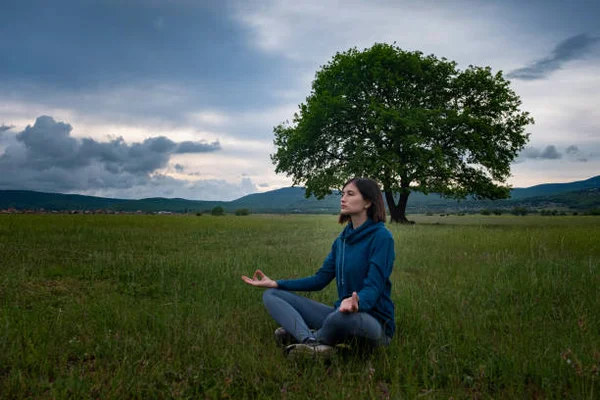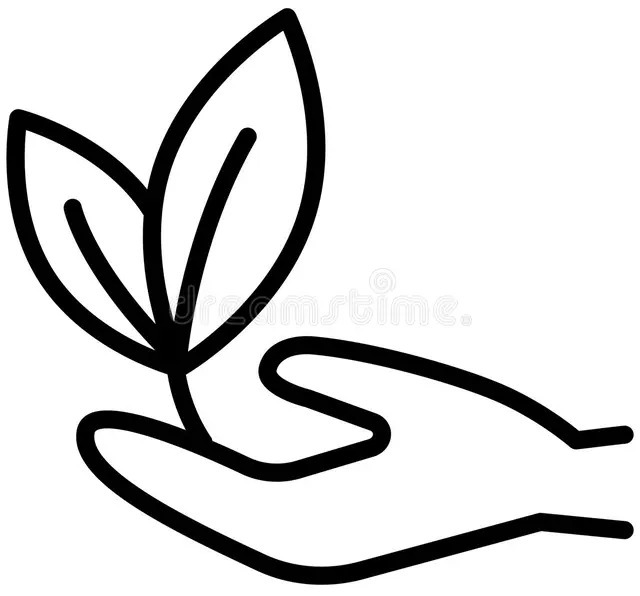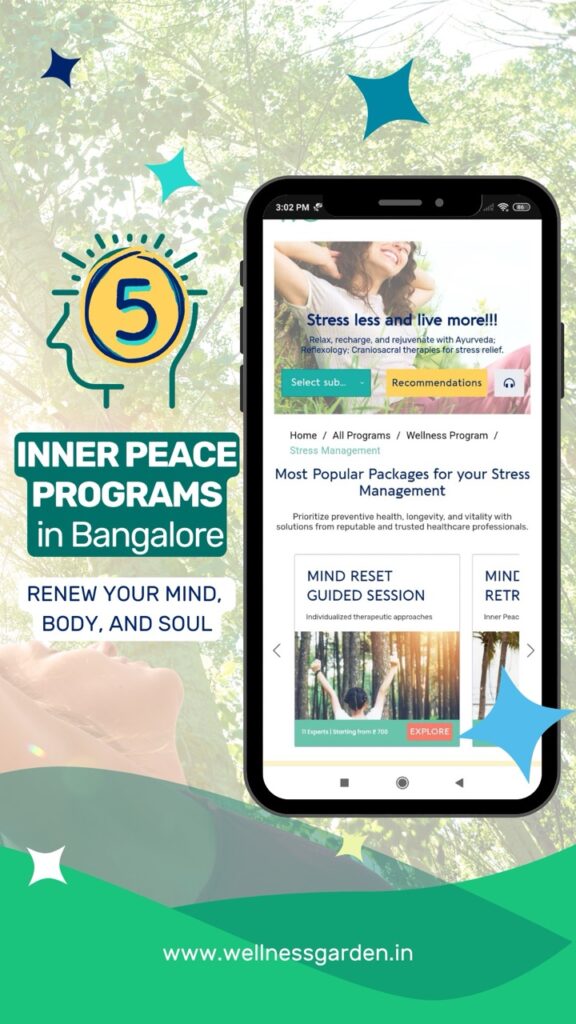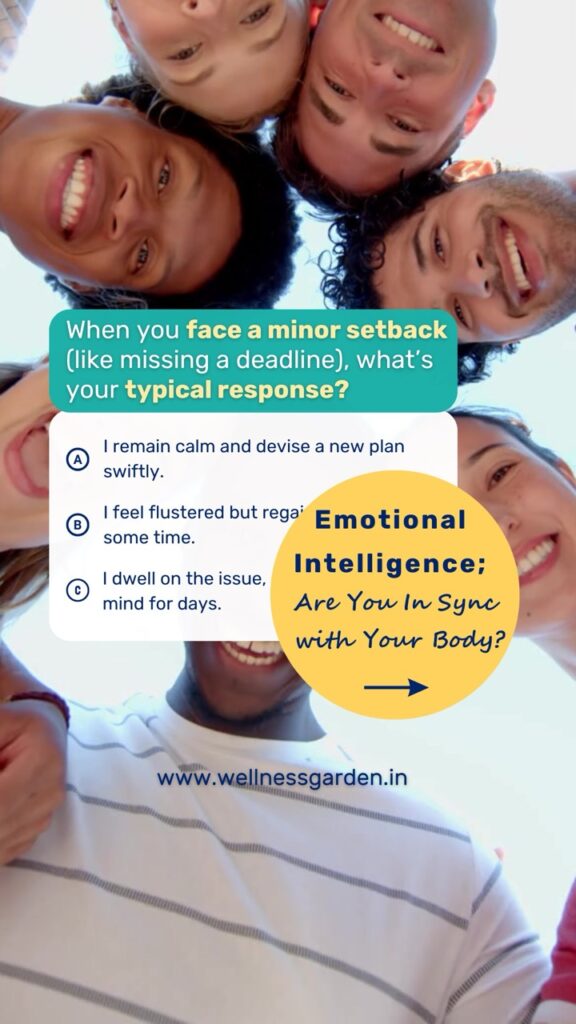The Power of Mind: Cultivating Humility Through Mindfulness
- Harmony
- 4 Min
- June 8, 2024
- Behaviour Health, MindBody

Introduction
The positive impacts of mindfulness on emotional and mental wellness have been shown in many research studies. It has been demonstrated that practicing mindfulness lowers stress, enhances emotional control, and improves life happiness in general. According to new research, being mindful can improve humility by encouraging awareness of myself, lessening ego-driven actions, and cultivating an attitude that is more caring and accepting.
What Does Humility Mean?
Being humble does not imply being weak or lacking confidence. Rather, it’s about keeping a positive sense of ourselves while acknowledging and embracing our flaws and limitations. It entails being receptive to opinions, appreciating the efforts of others, along being prepared to grow from errors.
Significance
The foundation of emotional intelligence and humility is necessary for both positive interpersonal interactions and successful management. It enables people to establish deeper bonds with people, promoting empathy and a cooperative, welcoming atmosphere. In addition, humility strengthens our resilience and lowers stress, both of which can be beneficial to our emotional and mental wellness.
The Relationship Between Humility and Mindfulness
Humility and meditation are closely related, and each strengthens the other. We can develop a life that is more humble and loving by making use of our mental faculties.

What Is Mindful Living?
Being completely present in the moment, while maintaining an open-minded and impartial awareness of our emotions, thoughts, and situation is the practice of mindfulness. We can cultivate this state of being by using practices like attentive breathing as well as meditation.
How Humility Is Promoted by Mindfulness
- Improves Self-Awareness: Vipassana develops humility by allowing us to observe how we feel and think without passing criticism. This allows us to become more aware of our preferences and limits.
- Encourages Non-Judgment: By learning to recognize both our own and other people’s shortcomings, we can lessen the impulse to put ourselves above other people.
- Promotes Curiosity and Transparency: Being mindful helps us question our presumptions and become more receptive to learning from others. It also helps us embrace every moment of openness.
- Develops Compassion: By decreasing self-importance and fostering a humble mindset, mindfulness, particularly through meditation on affection, improves our ability for empathy.
Useful Advice for Including Mindfulness in Everyday Activities
- Begin with small steps
Practicing mindfulness regularly doesn’t have to be difficult. Start simply by establishing an objective for the day or dedicating a few moments each day to mindful breathing exercises.
- Set an everyday routine
Making mindfulness an everyday component of our lives might be facilitated by routine establishment. If you want to practice mindfulness every day, plan a specific period—before bed, during lunch, or in the morning.
- Stay patient and diligent
It takes time and effort to gradually cultivate humility and mindfulness. It’s critical to practice self-compassion while recognizing that progress is an ongoing one.
- Seek for Advice
Engaging a mindful breathing partner or enrolling in an awareness group can help us on our path to developing deeper humility and awareness.
True Stories of Generosity via Mindfulness
A Study in Humility for a Discipline
- A well-known tale from the life of the Buddha concerns a student who was embarrassed to beg for alms. Even though this student was committed, he found it difficult to have the dignity that monks need to beg for food. The Buddha gently reminded him that his receiving alms was not the only purpose of asking; it was also an opportunity to help others demonstrate charity. The importance of humbleness and the readiness to seek assistance when necessary were stressed in this lesson. It had a profound impression on a lot of individuals and demonstrated how mindfulness techniques may promote humility.
- Maria’s Journey to Acceptance of Herself: Maria was an educator who battled thoughts of inadequacy and critical thinking. She felt inadequate and often made comparisons to other people. Maria decided to use mindfulness techniques in her everyday life after participating in a mindful course. She started with a gentle meditation and attentive breathing. Maria gained the skills of self-compassion and non-judgment through meditation. She began to see her talents and accept her flaws. Maria’s perspective changed, enabling her to become less critical of herself and more humble. She felt happier in her private and professional lives, and her connections with her pupils and coworkers strengthened.
Here at Wellness Garden, we provide tools to support the cultivation of humility and mindful living:
- Mindful Classes and Seminars: Weekly meetings and focused workshops on stress management & self-love.
- Online training and resources include a resource library, directed meditations, and flexible courses.
- One-on-One Coaching: Tailored group therapy and tutoring in mindfulness.
- Programs centered around nature and meditation retreats are examples of immersive experiences.
- Journals, mindfulness kits, and meditation programs are examples of tools and products.
- Community & Events: Periodic parties, occasions with special guests, and more.
Conclusion
Mindfulness-based humility cultivation is a living-changing path that has the potential to significantly improve our quality of life. We can become more humble as well as accepting of ourselves and other people by adopting non-judgment, inquiry, and compassion. A greater awareness of connectedness to everything around us, improved relationships, and increased emotional well-being can all result from this point of view change. We may embrace the power of the mind to develop into more modest and compassionate humans as we keep practicing mindfulness, which will help create a more peaceful and open-minded world.
A Word from WG
Wellness Garden is your committed partner in seeking comprehensive natural and holistic therapies to address all your pain and wellness requirements. Our approach encompasses the entirety of your body, mind, and environment, integrating body, mind, and nutrition therapy and various other back pain therapies and techniques.
Whether facing physical or mental health concerns, life hurdles, or simply aiming to enhance your overall well-being, we’re here to provide the support you need. Get in touch with us to explore the possibilities and embark on your journey towards holistic therapy and improved health.
- Table of Contents
- • Introduction
- • Useful Advice
- • Our Services
- • A Word From WG
Recent Posts
Join Our Newsletter
End note from WG Team
Disclaimer: This information is provided for educational purposes and should not be construed as medical advice. Please consult with healthcare practitioners before undertaking any changes in wellness routines or adding new therapies.
Latest Blogs
Check out some of your blogs related to your interest.
- February 7, 2026
- NIH
- 3 Mins

- January 4, 2026
- Marc Cohen, MBBS (Hons)
- 3 Mins
- December 28, 2025
- Dr. Pauline Boss
- 3 Mins
- November 30, 2025
- Dr. Peter Levine
- 3 Mins





